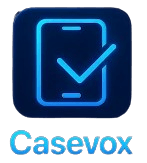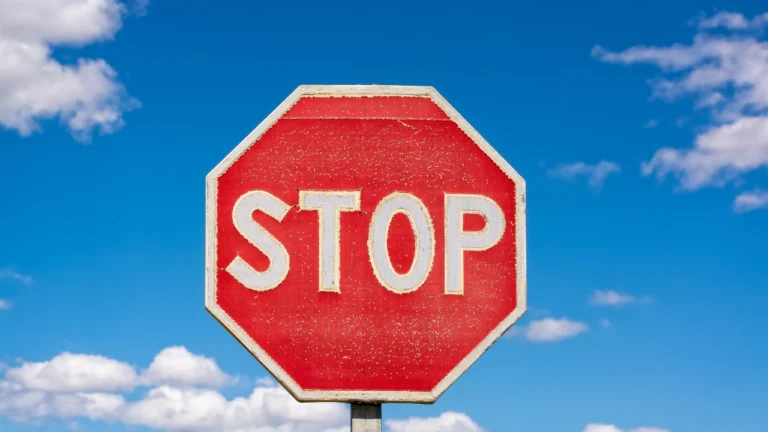Credit Bureau of High plains Debt Collection Harassment❓ Stop the Calls❗
Tired of Credit Bureau of High plains Debt (CBHP) Collection Harassment? Wish there was a way to make the calls stop? Is Credit Bureau of High plains constantly calling and harassing you? Does your phone ring every day, several times per day, because Credit Bureau of High plains is calling you to demand payment? Threatening you with legal action? Has Credit Bureau of High plains ever used abusive or profane language when speaking with you on the phone? If so, Credit Bureau of High plains may be violating your legal rights. Stop the harassment.
The Fair Debt Collection Practices Act, also known as the FDCPA, protects consumers’ rights in the context of debt collection. In other words, debt collectors must adhere to a certain set of rules when they are pursuing consumers who owe money. If a collector violates the FDCPA, you can sue the collector in court. The law allows consumers who have been victims of harassment from debt collectors to get the calls to stop in addition to recover statutory damages of up to $1,000, plus attorney fees and court costs. Consumers can issue a ‘cease and desist’ letter to stop unwanted calls from debt collectors.
Introduction to the Issue
Dealing with debt collectors can be a stressful and overwhelming experience for consumers. The Fair Debt Collection Practices Act (FDCPA) is a federal law that regulates the behavior of debt collectors, including third-party debt collectors and collection agencies. Understanding the rights and responsibilities of both consumers and debt collectors is crucial in navigating the debt collection process. The FDCPA ensures that debt collectors adhere to fair debt collection practices, protecting consumers from abusive and deceptive tactics. By being informed about these practices, consumers can better manage their interactions with debt collectors and safeguard their rights.
Understanding Debt Collection
Debt collection is the process by which a debt collector attempts to collect a debt from a consumer. Debt collectors may use various methods, including phone calls, letters, and emails, to demand payment from consumers. However, debt collectors must comply with federal laws, such as the FDCPA, and state laws that regulate debt collection practices. Consumers have the right to dispute a debt and request proof of the alleged debt from the debt collector. It is essential to understand the difference between a valid debt and an alleged debt, as well as the steps to take when dealing with debt collectors. Knowing your rights can help you navigate the debt collection process more effectively and protect yourself from unfair practices.
Is Credit Bureau of High Plains a Scam?
According to the Better Business Bureau website, Asset Recovery Associates has been in business since 1997.

Who is Credit Bureau of High Plains?
Credit Bureau of High Plains is a collection agency and third party debt collector located in Canyon, Texas. They have been a party to several federal cases based on their issuance of credit and collection of debts incurred on their credit cards. A recent Federal Court case alleges that Credit Bureau of High Plains used illegal and harassing communication tactics to attempt to coerce a payment from the harassed consumer.
🏛️ Credit Bureau of High Plains Address: 2001 4th Ave Canyon, TX 79015
📞 Phone: 800-658-9294
📠 Fax: 806-655-9004
Credit Report Concerns
Credit reports play a significant role in the debt collection process. A credit reporting agency may report a debt on a consumer’s credit report, which can affect their credit score. However, consumers have the right to dispute errors on their credit report and request that the credit reporting agency correct them. The Fair Credit Reporting Act (FCRA) regulates the behavior of credit reporting agencies and provides consumers with protections against inaccurate or incomplete information. Consumers should be aware of their rights under the FCRA and take necessary steps to ensure the accuracy of their credit report. Regularly checking your credit report and disputing any errors can help maintain your credit health and prevent issues related to debt collection.
Credit Bureau of High plains Debt Collection Harassment Tactics
If Credit Bureau of High Plains engages in any of the following tactics, you may have a case:
- ➢ Calls before 8:00 a.m. or after 9:00 p.m. or at any time or that they are given notice that it is inconvenient to call
- ➢ Use any profane language or any language that is harassing and abusive
- ➢ Engage in any conduct, the natural consequence of which is to harass, abuse or oppress.
- ➢ Make any misrepresentations of fact, such as how much is owed, or certain actions they may take to force payment
- ➢ Call the consumer’s place of employment if they have been advised that calls cannot be accepted at work.
- ➢ Threaten arrest or criminal prosecution
- ➢ Send false information to the credit bureaus
- ➢ Cause a telephone to ring an unreasonable amount of times
- ➢ Continue attempting to collect a debt despite being informed to cease communication
Dealing with Debt Collectors
Dealing with debt collectors can be challenging, but consumers have rights and options. When a debt collector contacts a consumer, they must provide certain information, including the amount of the debt and the name of the original creditor. Consumers have the right to request proof of the debt and dispute the debt if it is inaccurate or incomplete. Debt collectors are prohibited from using deceptive practices, such as making false or misleading statements, and from harassing consumers with multiple phone calls or letters. Consumers should keep records of all communication with debt collectors, including phone calls and letters, and seek assistance from a law firm or government agency if necessary. By understanding your rights and keeping detailed records, you can better manage your interactions with debt collectors and protect yourself from unfair practices.

Seeking Professional Help
If a consumer is experiencing harassment or abuse from a debt collector, they should seek professional help. A law firm specializing in debt collection and consumer rights can provide guidance and representation in dealing with debt collectors. Consumers may also contact government agencies, such as the Federal Trade Commission (FTC) or the (CFPB), for assistance. Additionally, consumers can file a complaint with the Better Business Bureau (BBB) or their state’s Attorney General’s office. Seeking professional help can provide consumers with the necessary tools and support to navigate the debt collection process and protect their rights. Don’t hesitate to reach out for assistance if you feel overwhelmed or harassed by debt collectors.
Credit Bureau of High Plains Phone Numbers
Are you receiving any harassing phone calls from any of these numbers?
- 📲 806-655-2123
- 📲 800658-9294
If so, you may be a victim of Credit Bureau of High plains debt collection harassment. The list above is not all the numbers that Credit Bureau of High Plains uses. Also, calls can be from different numbers and it still be Credit Bureau of High plains calling you. Contact our office right away so we can start the process to stop Credit Bureau of High plains from calling you illegally. Above all, no one should live with harassment.

CONSUMER RIGHTS LAW FIRM PLLC
Consumer Rights Law Firm PLLC is a law firm that specializes in helping clients who are facing harassment from debt collectors in any form, including telephone communication. Contact a legal professional to stop Credit Bureau of High Plains debt collection harassment. Our office has been assisting consumers since 2010. We have an A+ rating with the Better Business Bureau. We offer a free consultation to potential clients to provide legal advice and help them understand their rights at no cost.
If you are interested in learning more about how to safeguard yourself and prevent even more Credit Bureau of High Plains debt collection harassment, call us at 877-700-5790 for immediate assistance or visit our website.
Success Stories
- 🏆 “CBHP harassed me about a 10-year-old debt that was past the statute of limitations. The Consumer Rights Law Firm PLLC team explained my rights, sent a validation request, and when CBHP couldn’t prove the debt, they dropped it entirely. No more calls, no more stress. Grateful for their knowledge and persistence!”
- 🏆 “CBHP left voicemails claiming I’d be arrested if I didn’t pay—a clear FDCPA violation. I reached out to Consumer Rights Law Firm PLLC after finding their free consultation offer. They documented the threats, sued CBHP, and won me $1,000 in statutory damages plus attorney fees. The firm’s expertise turned a nightmare into justice.”
- 🏆 “CBHP falsely reported a debt on my credit report, damaging my score. I tried disputing it myself, but they ignored my letters. Consumer Rights Law Firm PLLC stepped in, demanded validation under the FCRA, and forced CBHP to remove the inaccurate entry. They even secured a settlement for the harassment I endured. Lifesavers!”
FAQs
What counts as debt collection harassment by Credit Bureau of High Plains?
Harassment includes repeated phone calls intended to annoy, using abusive or profane language, threatening violence or legal action without basis, calling outside 8 AM–9 PM, or contacting your employer after you’ve asked them to stop—all prohibited under the FDCPA and Regulation F.
How often can Credit Bureau of High Plains legally call me?
They’re allowed up to seven calls per debt in seven consecutive days. Exceeding that or calling within that week after a conversation is presumed harassment under federal regulation.
Can I sue them for harassing phone calls?
Yes. If they violate FDCPA rules, you can sue within one year of the conduct, possibly recover $1,000 in statutory damages, actual damages, and attorneys’ fees.
Are threats of arrest or wage garnishment legal?
No. Debt collectors can’t threaten arrest or garnish wages unless a court judgment has been entered. Impersonating law enforcement or making false threats violates the FDCPA.
Can they call me at work or contact my employer?
Only if your employer allows it and you’ve not told them to stop. If you ask them not to, further calls violate federal rules.
What should I do if Credit Bureau of High Plains keeps calling?
Keep records of every call, send a written cease‑and‑desist request, and if calls continue, file a complaint with the CFPB, FTC, or your state attorney general. Consider legal consultation.
Can they use robocalls or automated messages?
Only if you’ve given prior consent. Otherwise, using robocalls without permission violates the TCPA and FDCPA.
Can harassment impact my credit report?
Yes. Harassment signals aggressive collection, but they can also report the debt to credit bureaus, which may lower your credit score. You can dispute inaccuracies.
How do I verify if this debt is legitimate?
Within five days of contact, they must send you a written notice with debt details. If you dispute in writing within 30 days, they must validate it or stop collection.
What are my rights under the Fair Debt Collection Practices Act?
Under the FDCPA you have the right to no harassment, truthful communication, debt validation, and to sue for violations. Debt collectors must also identify themselves and only call within allowed hours.







